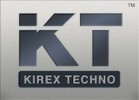Custom fabrication mechanical parts in China: Important points to specify
Following our article on the importance of technical specifications when purchasing mechanical parts in China, we post here a non-exhaustive list of norms defining several levels of acceptance according to different manufacturing processes.
We also include the mention Important to specify for cases in which, according to our experience, it is critical to mention a specific standard or detailed requirement in order to guarantee that the parts produced reach your requirement targets.
Casting: Lost wax casting / Investement casting / Sand casting
Important to specify: Acceptance level for internal defects of casting parts & Acceptance level for surface defects of casting parts
Material
- NF-EN A32-054 -> Alloy cast steel for general use
Internal quality (NDT : non-destructive test)
- NF-EN-12681 -> X-Ray: internal soundness
- NF-EN-12680 -> Ultrasonic test: internal defects & micro-structure
Surface quality (NDT: non-destructive test)
- NF-EN-12454 -> Visual control sand casting
- NF-EN-1371-2 -> Liquid penetration test for lost wax casting
- NF-EN-1371-1 -> Liquid penetration test for sand casting
- NF-A04-194 -> Acceptance criteria for casting surface products
- NF-EN-1369 -> Particle magnetic test
- NF-EN-1370 -> roughness comparator
Forging & Stamping
Material
- NF-EN-10250 -> Steel forged parts (non-alloyed, alloy, special alloy)
Others
- NF-EN-82-004 -> Hot, mid-hot and cold forged parts
- ISO-3266 -> Rod ring class 4 forged steel for lifting applications
- ASTM-A105/A -> Standard specification for carbon steel forgings for piping applications
- XP-CEN/TS-13001 -> Lifting application with high load
Welding fabrication
Important to specify: Welding seam heights (a and/or z height)
Geometrical tolerance after welding: specify post-welding machining if necessary
- NF-EN-ISO-5817 -> Welding steel fabrication: quality of weld seam & acceptance criteria
- ISO-14327 -> Weldability criteria for alloy steel and metallic products
- DIN-EN-ISO-15792-3 -> Welding material penetration criteria
- JIS-B-8285: pressure vessel -> Validation criteria for welding seam
Surface treatment
Important to specify: Zinc plating -> thickness in microns, salt spray test (red rust or white rust in hours)
Hot dip galvanization: thickness in microns, salt spray test (red rust or white rust in hours)
- DIN-ISO-14713-2 -> Hot dip galvanizing (ISO 14713-22009)
- ISO-9227 -> Corrosion tests in artificial atmospheres & Salt spray tests
- SAE-AMS-2417H -> Plating zinc-nickel alloys
Heat treatment
Important to specify: Hardness min and max, quench depth and temper requirement (for example: 42-46HRC, 0.2mm to 1.5mm)
Minimum hardness deepest point (for example: > 5mm, > 30HRC)
Mechanical properties after quenching and tempering (+QT) on sample ladle: tensile strength, yield strengh, A%, resilience (temperature and KV in Joules)
- Surface quality -> Magnetic particle test for high carbon equivalent alloys
- NF-EN-10083-1 -> Steel for quench and tempering
- NF-EN-10083-3 -> Bore steel
- NF-EN-10085 -> Steel for nitrification
Coating and surface preparation
Important to specify: Surface preparation: shot blasting, sand blasting, surface criteria (for example: SA2.5)
Epoxy/Polyurethane coating: primer thickness and type in microns, top coat thickness and type in microns
Powder coating: thickness in microns, UV resistance criteria for outdoor use (hours, salt spray test (red rust or white rust in hours)
- ISO-11507 -> UV resistance criteria for outdoor use
- ISO-9227 -> Corrosion tests in artificial atmospheres & salt spray tests
- ISO-20567 -> Shock resistance criteria against impacts
